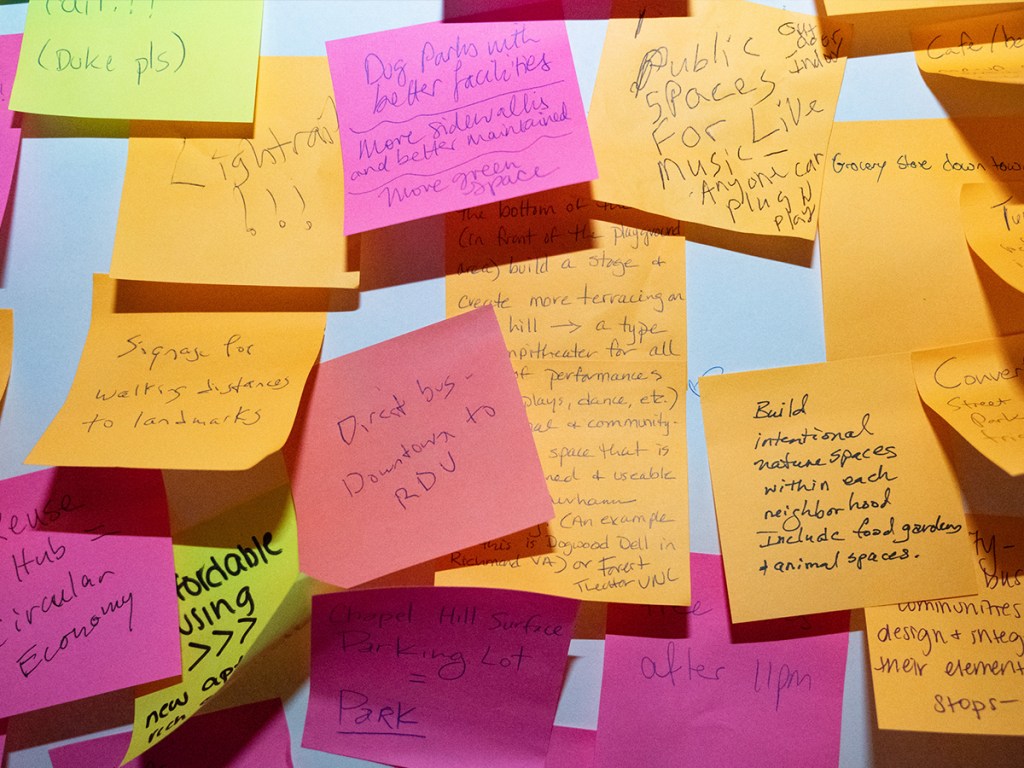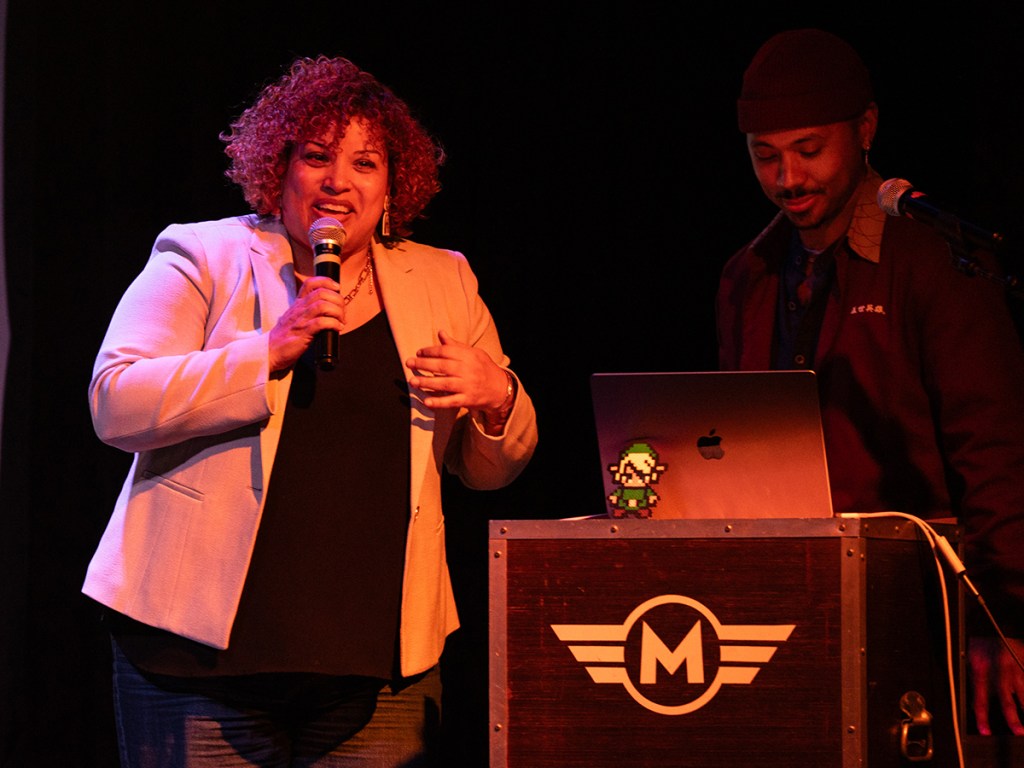“It’s not the critic who counts…”
The essay from which that line is borrowed, Man in the Arena, written by President Theodore Roosevelt, has stuck with me ever since I first read it in 2013. An excerpt was painted on the basement wall at American Underground where I’ve had an office for the past decade. It’s an ironic quote for a journalist to be empowered by. We are squarely in the critique business. Still, I read it almost every day for years.
The passage continues:
“…who at the best knows in the end the triumph of high achievement, and who at the worst, if he fails, at least fails while daring greatly, so that his place shall never be with those cold and timid souls who neither know victory nor defeat.”
Last Wednesday night, I shared a room full of daring individuals ready to grab the bull by its horns. Over a hundred people from all over the city gathered together at Motorco to brainstorm an important question: What’s our vision for Durham in 2030?
Over the course of the event, audience members generated ideas big and small for how to push the Durham community into the future, and move us in a direction that feels authentic to our values. And the presenters—Fullsteam’s Sean Wilson, public engagement specialist Aidil Ortiz, developer Bob Chapman, and Empower Dance Studio’s Nicole Oxendine—who didn’t know about each other’s ideas before the event, still landed on a common theme: in-person community building. We even got Mayor Leonardo Williams, who joined a panel discussion with several of the presenters, to consider making one of the ideas, Nametag Day, an official citywide proclamation on March 1.
Our lives have become increasingly isolated, as The Atlantic’s recently published feature, “The Anti-Social Century”, interrogates. The story is haunting. But Wednesday night showed me that the Durham community is prepared to rebuke that notion.

And while we had lots of fun at the event, we also wrestled with heavy issues like affordable housing and transit equitability. Folks in the crowd pressed our team and the speakers on how we think critically about welcoming everyone’s voice into this future Durham. I commend our attendees, and our guest presenters, for tackling the question head-on, even staying well after the event to continue the dialogue.
In Durham’s not-so-distant past, creativity and ingenuity were front-and-center. During opening remarks, I shared a photo of me from 2012 that was taken during an event called ReFashioned, a local runway show hosted by Durham designers. The event was scrappy and lo-fi but bursting at the seams with the type of energy that gives the Bull City its unique style.

In the intervening years, Durham has changed. The glowing write-ups in travel blogs and food magazines are fewer and farther between. Passion for the city remains steadfast, but our creativity and ingenuity has sputtered. Our pursuit of a utopia now feels more like a fight for basic needs and survival.
Apartment buildings have proliferated across downtown, yet foot traffic is lacking. Housing remains a challenge. Our schools are fighting through some self-inflicted wounds. Gun violence plagues our most vulnerable neighbors. And some of our major roadways need substantial safety improvements.
But this is our opportunity to think beyond our imagination and use our gifts, those same Durham values, to reach for the stars. In the face of hardship and uncertainty, last week’s event showed we still have it in us to dare greatly.
Support independent local journalism. Join the INDY Press Club to help us keep fearless watchdog reporting and essential arts and culture coverage viable in the Triangle.
Follow Reporter Justin Laidlaw on X or send an email to [email protected]. Comment on this story at [email protected].
